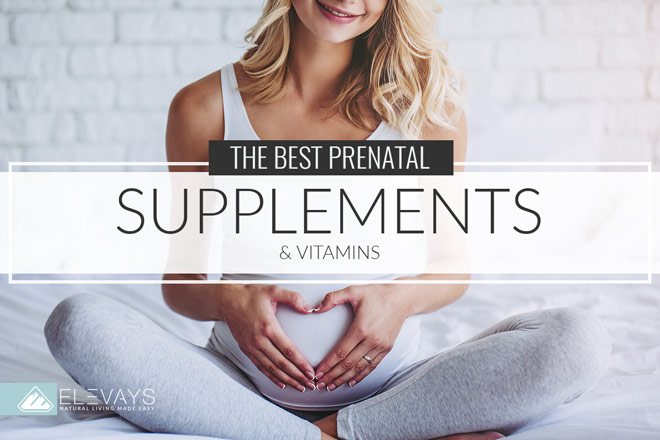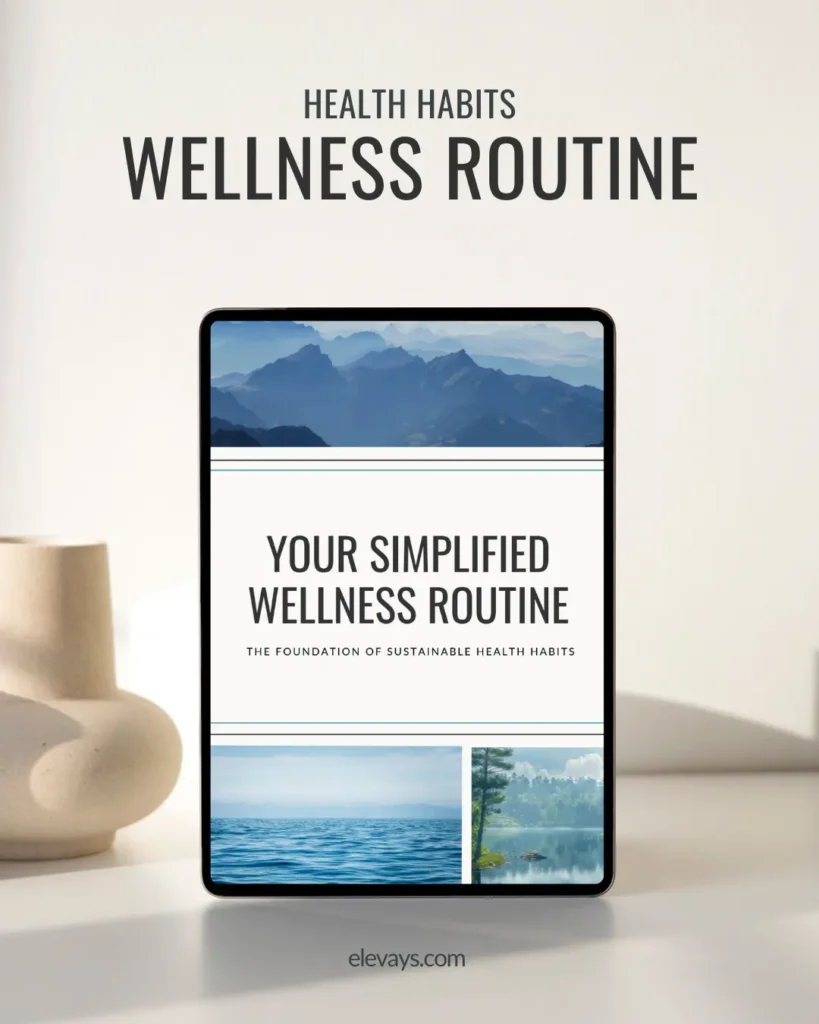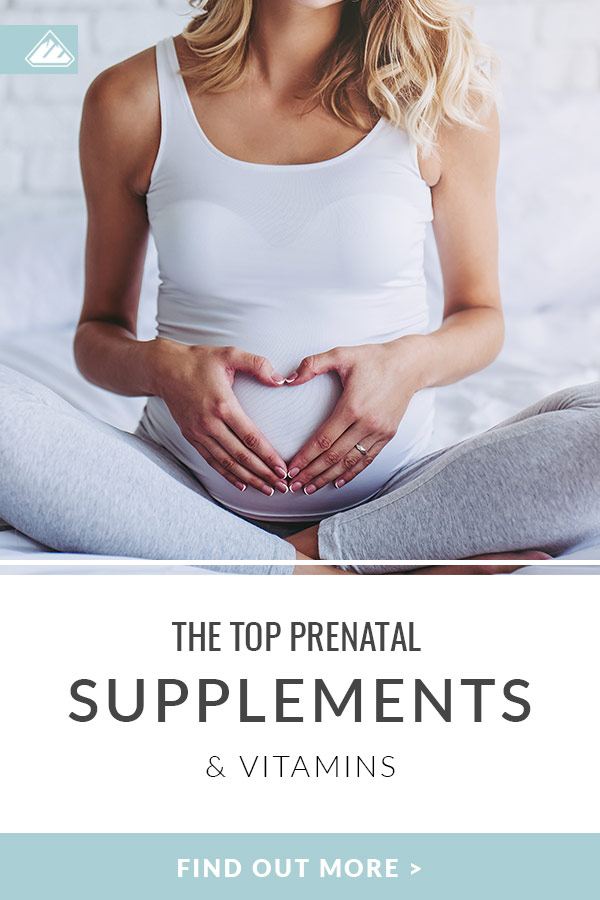There are so many things to consider during pregnancy, and choosing the right prenatal vitamins should be the easy part. But there is a lot of conflicting information out there, and not all supplements are created equal. This is why I decided to share everything I know about how to choose high-quality prenatal vitamins for pregnancy.
Why Do You Need Prenatal Vitamins?
This is an important one to talk about because there are still some people out there saying that prenatals aren’t necessary. I would argue that supplementing is necessary all the time, especially during pregnancy. Unfortunately, our food isn’t as nutritious as it once was, even when you buy organic. Because our food is so mass-produced, it often gets grown in soil that is nutrient-depleted, picked before ripe, and shipped across the country.
One way you can make sure you’re getting more nutrition is by getting a CSA from a local farm or buying from your farmer’s markets. But beyond the food itself, gut health plays a big part in your body’s ability to break down and fully absorb nutrients. So if you’ve ever compromised the health of your gut by eating inflammatory foods, or taking prescriptions and antibiotics, your body may not be able to get all the nutrition it needs from food.
TRUTH BOMB:
You’re
Already killing it!
If You Were More Consistent With Your Wellness Routine, You’d Be Unstoppable.
And when it comes to pregnancy, let’s be real, sometimes all you feel like eating is some (gluten-free?) bread with butter. Morning sickness and nausea can really put a damper on getting all the nutrition you need, which is why prenatal supplements and vitamins are beneficial to your health during this major time in your life.
Essential Nutrients for Pregnancy
So what nutrients do you need while pregnant that vitamins and supplements can help provide? Some are definitely more important than others, so let’s get into the nitty-gritty on what the best prenatal vitamins will contain.
Folate
You’ve probably all heard of folic acid, and it’s one of the most important vitamins for women to take during pregnancy. Being deficient can lead to neural tube defects in baby (1), like spina bifida and even congenital disabilities like cleft palates. Because of this, when people ask when to start taking prenatal vitamins, I recommend immediately after you find out you’re pregnant, and preferably even as soon as you start trying.
Now you’ll notice I talk about folate instead of folic acid. And that’s because folic acid is the synthetic version. Some people have a gene mutation called MTHFR, which means they are unable to break down and utilize this vitamin, and therefore they aren’t getting any of the benefits!
Besides this, excess folic acid has been found to increase the risk of cancer and undetected vitamin B-12 deficiency (1). So to make sure you’re getting all the benefits of folate look for prenatal vitamins that contain 5-methyltetrahydrofolate instead of folic acid.
Ginger
Okay, let’s talk herbs for morning sickness. Unfortunately, this is a reality for so many pregnant women and can lead to malabsorption of vitamins, loss of appetite, and just feeling awful. One thing that works and is safe for pregnancy is ginger. And some prenatal vitamins include ginger for exactly this reason.
If you want a DIY option, peel and grate some fresh ginger and boil about a tablespoon in 8 oz of water to make a tea. Strain out the ginger and add some lemon and honey for a comforting hot drink. Another fun recipe for the summer months is to use less water, maybe 4 oz, and let the ginger cook down. Add some honey to make a simple syrup and then add it to sparkling water for a kind of healthy homemade ginger ale.
Iron
When a woman becomes pregnant, she begins to grow a whole new organ in her body, the placenta, which will supply nutrients to her baby- her blood volume also begins to increase by up to 50%! (2)
Iron is necessary to help create all this extra blood and pregnant women need to make sure they are getting enough of this important mineral. In fact, around 18% of pregnant women become iron deficient. That’s why you’ll want prenatal vitamins that contain iron, because chances are you won’t be getting enough from food alone unless you’re sitting around eating chicken liver or oysters all day (although if that’s what you’re doing, more power to you!) If your prenatal doesn’t have iron, floradix is a excellent herbal option.
Magnesium
There are so many reasons to add a magnesium supplement to your life. This mineral is responsible for hundreds of chemical reactions in your body, and a deficiency can lead to muscle cramps and nerve issues. During pregnancy, not consuming enough magnesium can even lead to high blood pressure and preterm labor (2).
Another added benefit of magnesium is that it can help keep your bowels moving. Constipation during pregnancy is pretty common, especially if you’re taking extra iron. And this can lead to a whole cascade of issues like hemorrhoids. No fun at all! Making sure your prenatal vitamins contain magnesium will keep things regular, help you sleep, and cut down on extra muscle cramping.
Peppermint
Another awesome herb for pregnancy is peppermint. It eases nausea and is an antispasmodic like ginger, which basically means it eases any cramping in the stomach and the gut. You can always use peppermint and ginger essential oils by simply smelling them or applying a drop or two to the pulse points.
But my favorite way to work with herbs like peppermint is in tea form. It’s so refreshing, especially in the summer as iced tea. And you can enjoy up to 3 cups a day safely while pregnant.
Omega-3s
People take omega-3 fatty acids and fish oils to boost brain function and lower inflammation. This makes it an essential supplement during pregnancy to help the baby’s brain and nervous system develop (3). It’s also vital to breastmilk production, so keeping up adequate stores during pregnancy is critical.
If you’re taking fish oil make sure it is 3rd party approved to be free of mercury because fish can contain high levels of heavy metals that are dangerous to a growing baby. This is why pregnant women are encouraged to avoid tuna and other large deep water fish. If your prenatal vitamins contain fish oil, they probably use a safe source, but if you want to try and get all your omega-3s from foods, eat two to three servings a week of fish like wild-caught salmon or sardines that are low in mercury.
Vitamin D
Women who are deficient in vitamin D are known to have a harder time conceiving and can experience complications like gestational diabetes, high blood pressure, and premature labor (2). It is crucial to get enough vitamin D, either by spending some time outdoors without sunscreen or taking a supplement. There are many reasons why someone won’t be able to get their necessary vitamin D from the sun, either because of where they live or skin pigmentation, so making sure your prenatal vitamins contain vitamin D is crucial.
And if there isn’t enough in your prenatal, use an additional supplement! One study found that 4,000 IU was the most beneficial in preventing preterm labor and infections, while the average prenatal vitamins only have 400 IU (4).
Vitamin C
Vitamin C is a key nutrient for when it comes to making collagen, which is crucial for bones, tendons, cartilage, and even skin. You can imagine why that would be important during pregnancy when your body is making a whole new tiny person!
Besides this, immunity naturally becomes more compromised during pregnancy, making you more vulnerable to any little infection that comes along. Keeping up your stores of vitamin C will help prevent illness and act as an antioxidant to protect your cells. There’s no need to be excessive about it, just make sure your prenatal vitamins have vitamin C in it and include things in your diet like fresh orange juice or lemon. Side note on that: lemon water can also help with nausea and morning sickness.
Zinc
Another big player in the health of your body and immunity during pregnancy is zinc. It is crucial for healthy cell development, and since your body is creating so many so fast during pregnancy, you’ll want to make sure you’re getting enough of this vital nutrient.
While most people who eat high quality organic meats will get enough zinc, having a little extra in your prenatal vitamins might be a good idea. This is especially true if you’re a vegetarian or vegan.
Tips for Finding the Best Prenatal Supplements
When looking for a prenatal supplement, purity is everything, so make sure you’re buying from a reputable company. The best brands of prenatal vitamins will be 3rd party tested. Since supplements aren’t as regulated as they should be, it’s important to make sure the one you choose is high quality, and 3rd party seals of approval will show that the amounts and ingredients on the label are accurate.
So how can you choose the prenatal supplements and vitamins that are right for you? Ultimately, like anything else, do your research. Whole food supplements may be a better choice for you than synthetic vitamins, or maybe for absorption purposes; you want a chewable gummy instead of a capsule. If you’re vegetarian or vegan buying prenatal vitamins that have more iron, zinc, and B-12 might be more important than it would be for meat-eaters.
If you want to find prenatal supplements and vitamins online I recommend Innate Response’s Baby & Me. For starters, I love all of Innate Response’s supplements because they are made from real whole foods. This supplement provides a mother and child with all the vital vitamins and nutrients to support a healthy pregnancy and postpartum.
I LOVE this supplement and I took it during all 3 of my pregnancies and postpartum while nursing. highly recommend it.
As you know, during pregnancy, requirements for red blood cell production are higher. Baby & Me contains FoodState iron which helps with healthy red blood cell production. It also contains key vitamins in their most powerful and absorbable form: active form of B6, methylated forms of folate and B12.
So are there any prenatal supplements you discovered in pregnancy that you couldn’t live without? What brands are your favorite? I always love to hear from you, so leave us a comment and share your wisdom!
Sources:
- Arnarson, Atli (2019). “Folic Acid vs Folate.” Retrieved from: https://www.healthline.com/nutrition/folic-acid-vs-folate
- Kubala, Jillian (2017). “Supplements During Pregnancy: What’s Safe and What’s Not.” Retrieved from: https://www.healthline.com/nutrition/supplements-during-pregnancy
- American Pregnancy Association (2019). “Omega-3 Fish Oil and Pregnancy.” Retrieved from: https://americanpregnancy.org/pregnancy-health/omega-3-fish-oil/
- American Pregnancy Association (2019). “Vitamin D and Pregnancy.” Retrieved from: https://americanpregnancy.org/pregnancy-health/vitamin-d-and-pregnancy/






READ the Latest
Health Habits
Health Habits
Longevity
Longevity
One Comment